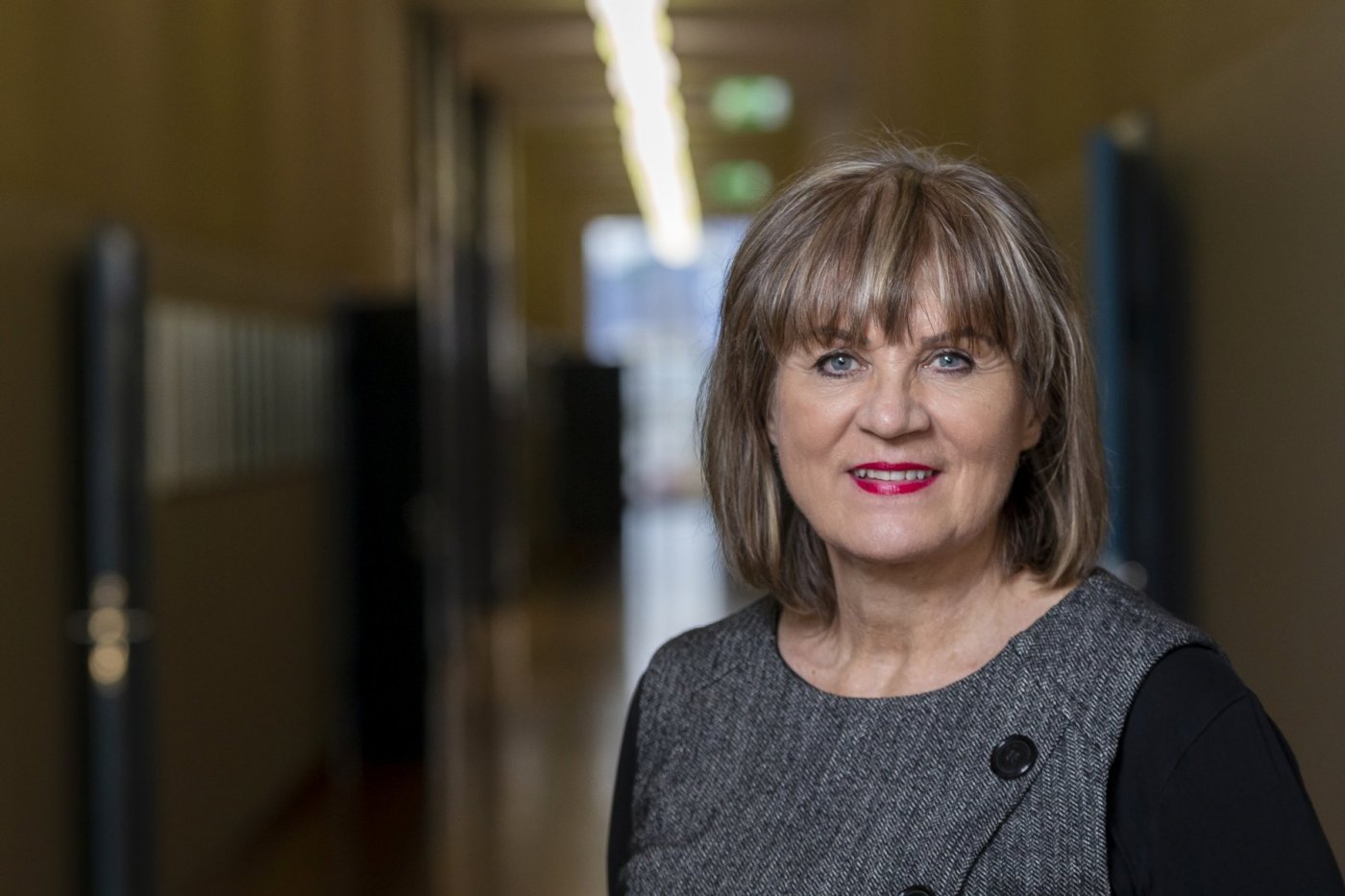Keynote title: The beautiful role of teacher education
Keynote speaker: Svanborg Rannveig Jónsdóttir
Institution: University of Iceland, School of Education

In my presentation, I want to discuss some ideas that I have come to appreciate about the role of education as we work towards developing creative, inclusive, and socially just societies. I will touch upon UNESCO´s (2021) call for education to address the need for urgent action to change humanity´s course using sustainability to save the future of the planet. Educators have been summoned to direct their attention towards a world-centred education and to engage with the artistry of teaching (Biesta, 2022). I want to discuss the disruption of the ´learnification´ discourse, a discourse that tends to serve forces that are not constructive to human existence in the world and to leave out or minimize an important educational purpose of ´subjectification´ (Biesta, 2012, 2018, 2022). Then I present two examples of constructive pedagogies, innovation and entrepreneurial education and transgressive learning. These pedagogies and other approaches in teaching and learning can include practices that may afford the role of subjectification as well as socialization and even qualification.
Teacher education has an intensely influential role in education as it provides settings and experiences that might construct beautiful education and training for would-be teachers. It has the power to have significant impact on what trainees learn about themselves, our up-and-coming teachers. We as researchers need to articulate ways in which student teachers could take the batons of big ideas from us as they learn how to work with children and young people. The role of teacher educator is a beautiful role, artistic, creative, complex, and preferably a collaborative role. To support teachers in enacting these critical and challenging roles, teacher educators across the globe are turning to Self-Study in Teacher Education Practice (S-STEP) methodology. An important emphasis in self-study is to promote the idea of teaching as a discipline and teacher educators’ professional knowledge as specialized and unique (Berry, 2015). I will describe the methodology of self-study and how it can inform and enhance learning and teaching about teaching, and empower teacher educators to take a stand in education. It is my conviction that teacher educators (and teachers) should consider self-study as a way to engage in critical research in order to excavate, enact and enhance the beauty of their many roles as they collaboratively apply creative and constructive approaches.
About Svanborg Rannveig Jónsdóttir
Svanborg Rannveig Jónsdóttir (svanjons@hi.is) is a professor in arts and creative work at the University of Iceland School of Education (IUE).
Svanborg and her husband Valdimar Jóhannesson are modern day Vikings. Members of their extended family operate a cooperative venture of family farms and other activities on the land Stóri-Núpur next to the river Þjórsá, 100 km from Reykjavik. This setting comes complete with its own Icelandic history from the settlement era, involving land ownership, politics, religion, farming, environmental issues, hydrodevelopment and not least a deep regard for education of many kinds.
As a newly wed in the mid 1970s Svanborg joined her husband on this adventure. Here they have raised a family of five children, all awesome individuals in adulthood, combining childrearing with many other tasks. Svanborg joined the first cohort in Iceland to graduate with a teaching degree (1978), followed by a diploma in design and crafts teaching (2001) and an M.A. degree in pedagogy (2005). Parallel to these studies she taught their district primary school for 28 years, reflecting becoming more and more on the phenomenon innovation before turning her attention to formal research.
Svanbord finished her doctoral studies in 2011 presenting a thesis entitled The location of innovation education in Icelandic compulsory schools. A key member of Svanborg‘s doctoral committee was the late Anna Craft professor in creativity at the Unversity of Exeter. Svanborg´s research interests and publications include innovation and entrepreneurial education, curriculum development, creativity in education, school change and self-study in teacher education and she has published a book on emancipatory pedagogy. https://uni.hi.is/svanjons/en/ritaskra/
Svanborg‘s friends and colleagues admire her resilience and tenacity, and her even temperament. She has published widely, usually with a co-author putting her views on cooperation and collaboration into practice. She was promoted in 2019 to the position of professor and has fulfilled an impressive and varied set of responsibilities in research, teaching and service. She has been actively involved in European projects.
